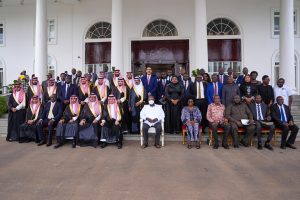
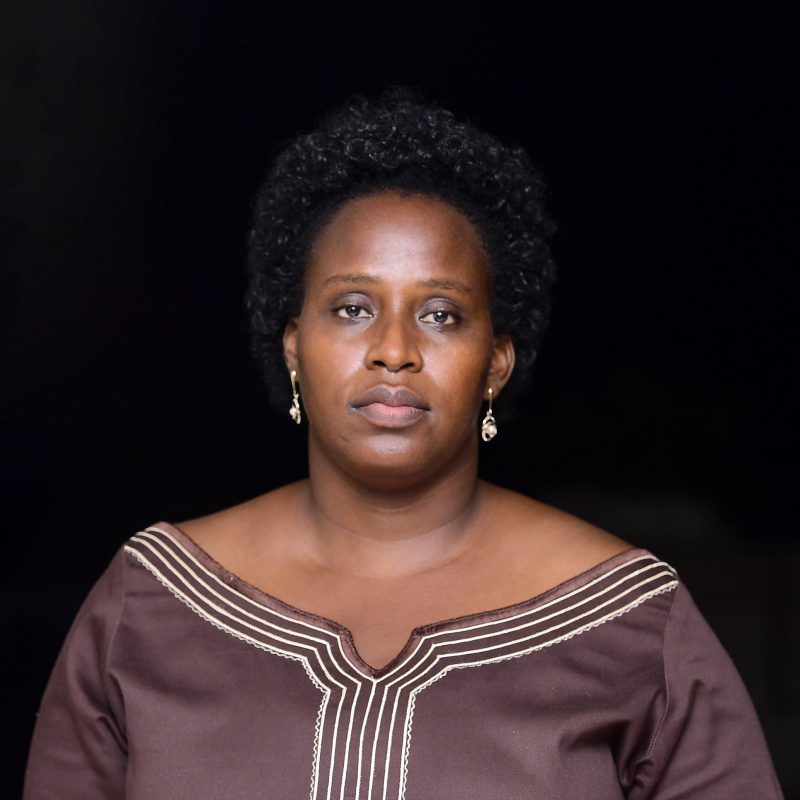
State House Comptroller
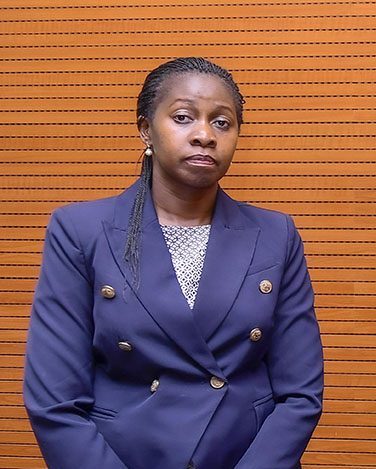
Principal Private Secretary to the President
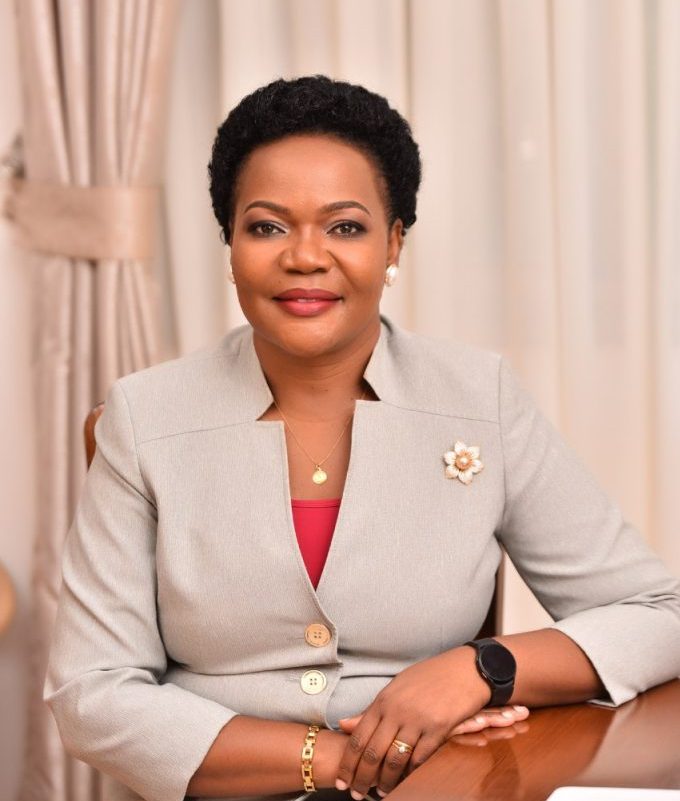
Principal Assistant Secretary to the First Lady

The Unit is responsible for handling all media related matters and liaise with all major media agencies locally and internationally for effective communication as well as counter negative reporting.
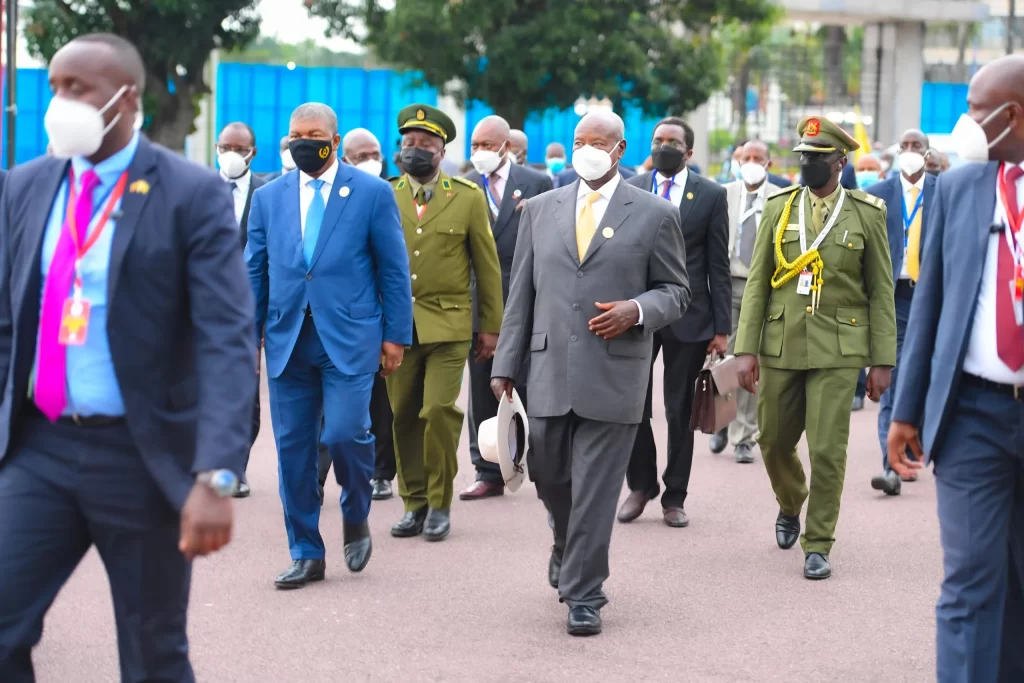
The Protocol Unit of State House is responsible for drawing and producing a realistic, tenable and rational work diary for H.E the President, manage it and ensure its successful implementation as well as to provide protocol services for the Institution of State House.
The Unit is also responsible for preparing H.E the Presidents’ programmes, arranging visits and making appointments for guests including foreign dignitaries. The Protocol Unit is among other things responsible for receiving and receiving diplomats and other guests and escorting them to H.E the President and to participate in ceremonies for diplomatic credentials in collaboration with the Ministry of Foreign Affairs.
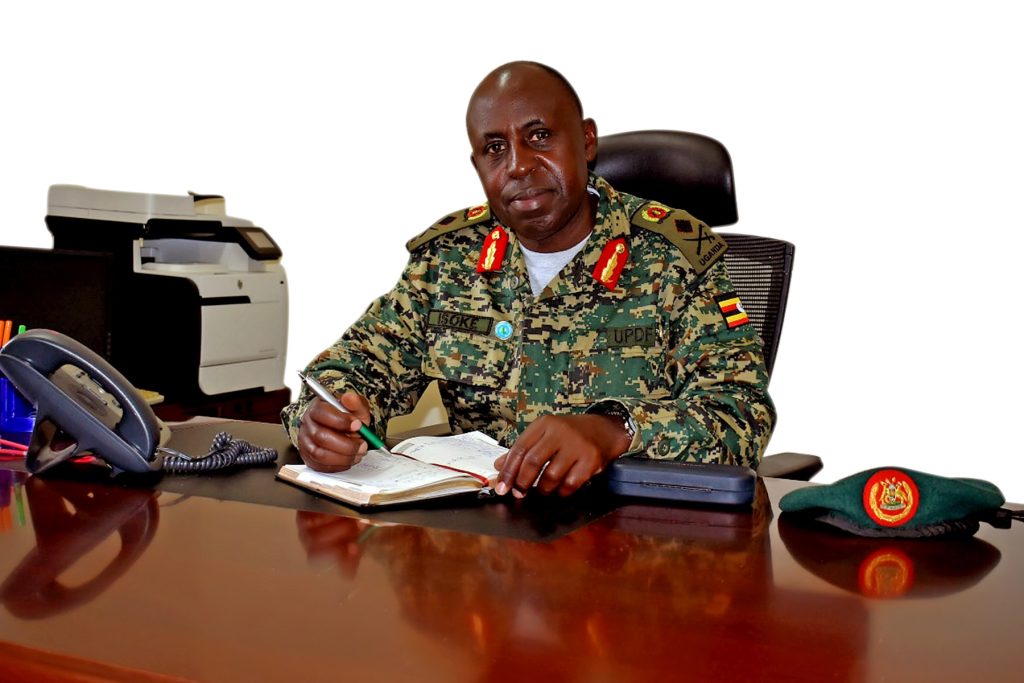
Uganda has taken significant efforts in the fight against corruption as evidenced by the institutional and legal framework, government policies and the commitment of the President towards zero tolerance to corruption.
Despite these efforts, Uganda continues to feature in global and regional reports as a country infested with corruption.
It is upon this background that the President acting under Article 99 (4) of the Constitution, established the State House Anticorruption Unit (ACU) on 10th December 2018. It was created to coordinate citizen’s corruption complaints to the presidency with the population and the constitutionally mandated agencies—with a view to obtaining a speedy resolution to these complaints.

The State House Investors Protection Unit empowers investors by fighting corruption.
The specialized Unit’s mandate is to increase the trust by the investors in the country’s systems and attract more parties to harness the country’s investment opportunities.
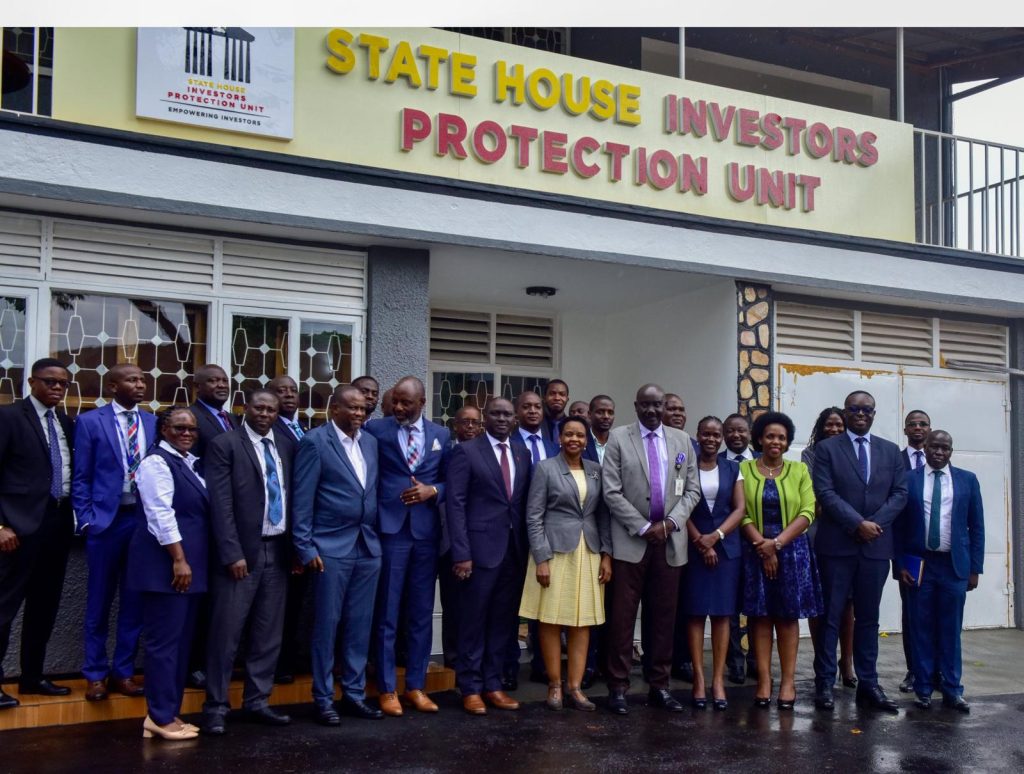
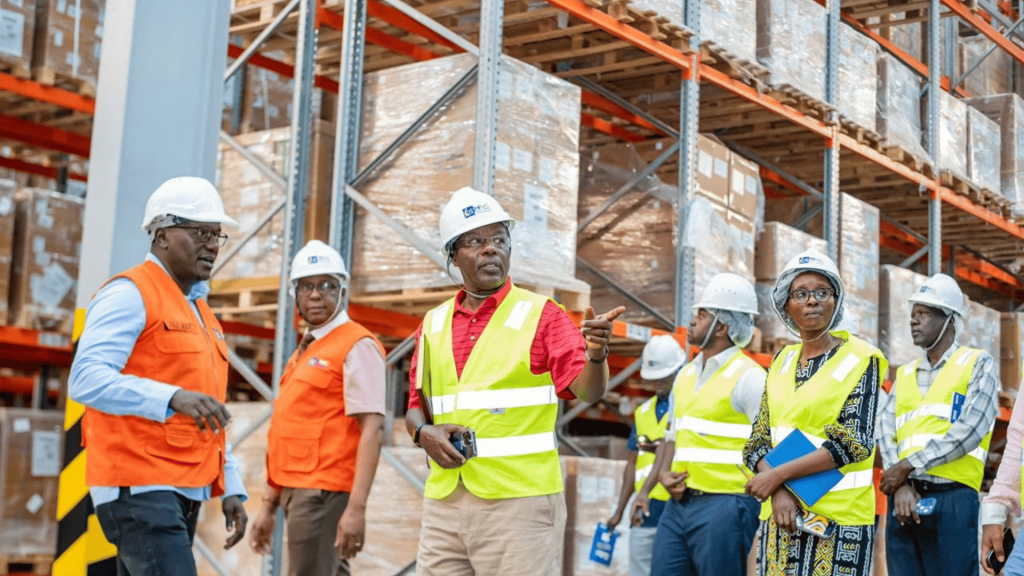
The State House Health Monitoring Unit (HMU), often referred to as the ‘third eye’ of the President, is an Anti-Corruption department within the State House established in 2009 by a Presidential instrument to enhance health service delivery. Its mission is to monitor, strengthen, and hold accountable the national healthcare system to provide equitable, responsive and affordable health care services to the Ugandan population. With a vision of a healthy and socio-economically productive Ugandan population supported by an effective healthcare system, SHHMU aspires to achieve sustainable, positive outcomes in the health sector.
The Unit’s monitoring efforts focus on core areas that form the building blocks of the healthcare system: Leadership and Governance, Human Resources, Infrastructure and Equipment, access to Essential Medicines and Health Supplies (EMHS), Health Information Systems, Health Service Delivery, and Health Systems Financing. Furthermore, strategic partnerships, civic education, and community engagement through dialogues and radio programs which have significantly increased public reporting and awareness on health service delivery. Noteworthy is that the community engagement platforms have raised awareness on the rights and responsibilities of the public in health care, empowering them to own health service delivery and hold their leaders and health care providers accountable.
The Unit’s work is supported by collaborations with various stakeholders, including but not limited to; the Directorate of Public Prosecution (DPP), Uganda Police Force (UPF), Internal Security Organ (ISO), Inspectorate of Government (IG), Ministry of Health (MoH), Ministry of Local Government (MoLG), Ministry of Education, Office of the Auditor General (OAG), Local Governments (LG), National Drug Authority (NDA), National Medical Stores (NMS), Ministry of Finance, Ministry of Public Service, Health Workers Professional Registration and Licensing Bodies, Implementing Partners, and Civil Society Organizations.
HMU is also committed to strengthening whistle-blower protection mechanisms to ensure that those who speak out against corruption are supported and safeguarded.
Our website; hmu.go.ug
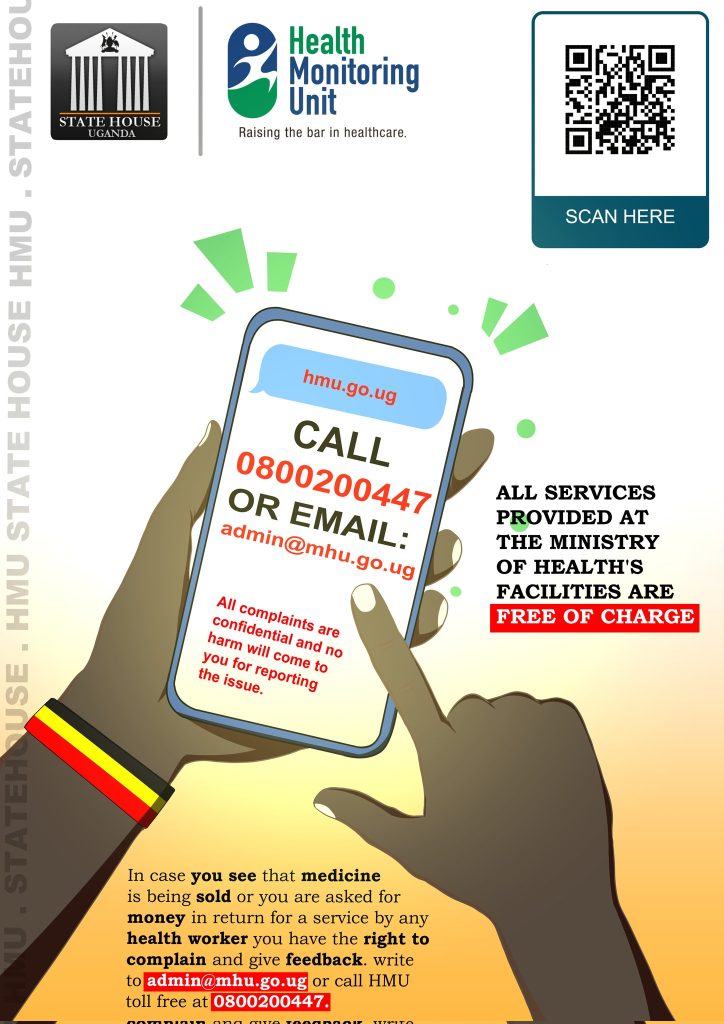
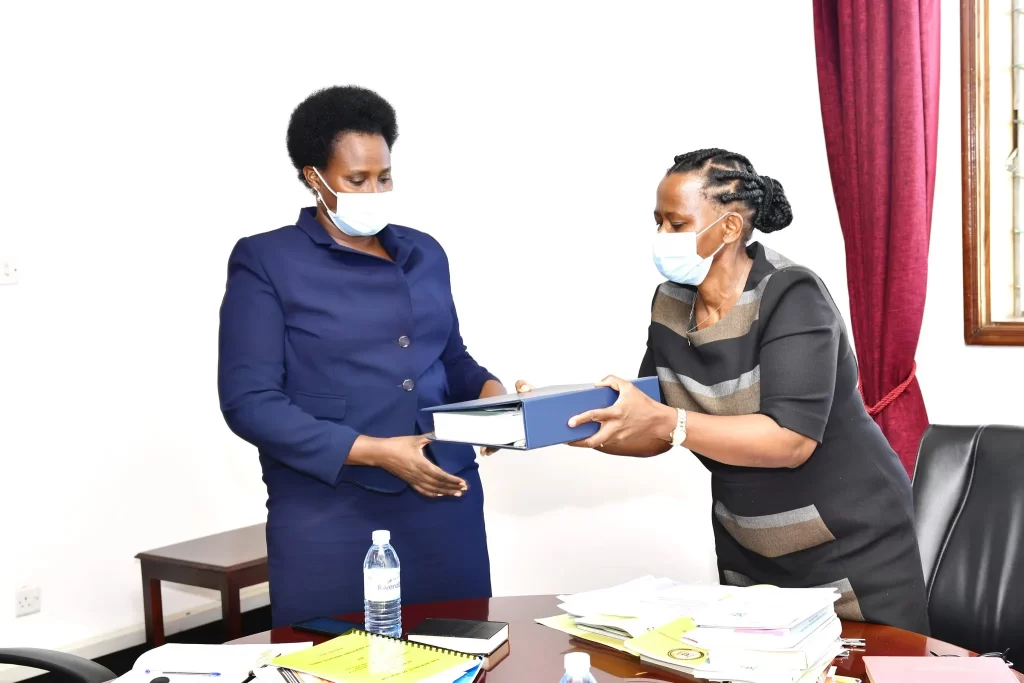
The Department of Finance and Administration is responsible for overall coordination, harmonization and collaboration of all operations and activities in State House.
The Department, headed by the State House Comptroller provides administrative support including securing and availing adequate human resources, finance, office equipment, accommodation, transport, records and information facilities/services to achieve efficiency and effectiveness in all operations and activities of the Institution of State House.
The department is responsible for maintaining and efficient and effective management systems for all fiscal resources and facilities and to ensure a timely and proper accountability of all the fiscal and other resources allocated and utilized in State House in accordance with the financial accounting regulations.
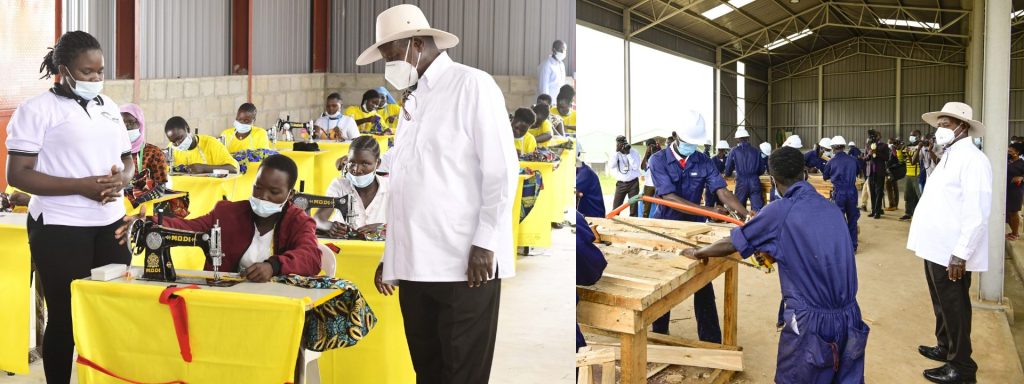
In 2000, His Excellency President Yoweri Kaguta Museveni established the Poverty Alleviation Department (PAD) in his office to specifically address wealth creation at household level. Under the President’s guidance, PAD developed the Presidential Initiative Against Hunger and Poverty to reflect His Excellency’s vision in fighting hunger whilst assisting homesteads to generate adequate incomes. The Initiative formally launched in January 2004 in Ruharo Parish in Bushenyi District, is gradually spreading to other districts. To date, there are 19 Model Parishes all over the country under implementation and five in the pipeline. PAD has registered success in the model parishes and is proud that the model parish concept is to be rolled out as a national strategy for fighting poverty at the household level (according to the 2011-2016 NRM Manifesto). PAD identified and linked entrepreneurs to H.E. the President, eventually their projects were funded by Government. They include, Mrs. Kizza of St. Jude in Masaka in fruit drying; and Sembeguya Estates in goat multiplication and export scheme. Under the joint venture with government, 108 farmers were selected to participate in the scheme; Teresa Winery is another entrepreneur promoted by H.E. the President through PAD. That is not all. The impact of our interventions has improved the livelihoods of thousands of families in Uganda and as we mark ten years of our existence, we would like to share with the public what H.E. the President has done through Presidential initiatives under PAD. Indeed this publication highlights H.E’s aspirations of transforming poor communities into self-sustaining, economically empowered communities. Vision and Mission The Vision of PAD is Prosperity for all Ugandans i.e, every household in Uganda has the means to earn the minimum income that enables it to access basic human needs such as; Food, Shelter, Clothing, Health and Education while the Mission is, “To transform poor communities into self sustaining entities economically and socially.” PAD Core Objectives
Functions of the Poverty Alleviation Department Home Improvement This component addresses general cleanliness and homestead hygiene, compound setup, availability of clean toilet facilities, utensils Rack, energy saving cooking facilities, clean water harvesting and storage facilities, general homestead hygiene and health facilities. These constitute the bench marks that every beneficiary of the Presidential Initiative must fulfill. Food Security This addresses the issue of hunger. It aims at improving availability of food both qualitatively and quantitatively. The food crops mainly used are improved/Hybrid Cassava, Sweet Potatoes, Yams, Millet, Upland Rice, Maize and Beans. In addition, all beneficiaries are encouraged to have Legumes, Vegetables and Fruits. This Pillar promotes best agro-practices through mobilization, training exposure tours and demonstrations. It also promotes soil rejuvenation through the utilization of organic manure and promoting agro-forestry. Income Generating Enterprises This component tackles poverty and lack of adequate incomes for households. The President’s Vision is to have every homestead in Uganda earn adequate incomes to cover their expenses and also be able to save. There are several factors that determine the types of Enterprises that are chosen for different homesteads and communities. The Department is currently promoting the following activities as Basic and Affordable Income Generating Enterprises; Zero Grazing, Piggery, Poultry, Sheep and Goat Rearing, Pond Fishing, Bee Keeping, Honey and Wax Processing, Clonal Coffee Growing, Fruit Growing, Crafts Making, Tailoring, Metal Fabrication. The Department also promotes
Value Addition and Marketing The Enterprises promoted by PAD are based on Market and Market Information reflecting demand at National, Regional and International Levels. In order to increase Revenue to farmers and access Regional and International Markets, Value Addition is very critical. PAD uses the following criteria for selecting Priority Sectors;
Savings and Credit This is mainly intended for the Urban Poor and Organized Rural Groups that lack land but have viable income generating activities. The beneficiaries are mainly Women and Youth Groups or Community Based Organizations. The groups are first strengthened through training on;
After the training, a Seed Grant to act as a Revolving Fund is availed to them for provision of Soft Loans to the Members. Where the Groups or SACCOs do not exist, the Department guides and assists the communities to establish them. The Model Parish Concept A Model Parish as the name suggests is an intervention evolved by H.E. the President to provide a Model for Socio-economic Transformation within a Parish Set-up which other communities can emulate and use to tackle poverty. Under the guidance of H.E. the President, PAD makes Demonstration Farms and Model Parishes to fulfill the President’s zeal to show the farmers and communities the best;
The communities are trained on how to engage in market-led farming on small holding to realize meaningful incomes. “The Concept of Model Parishes is built around Progressive Farmers who are identified as Lead Farmers / Change Agents in the areas of operation”. They are then trained in best Agro-practices. When PAD eventually withdraws from the community, the Lead Farmer takes on the role of training the communities. They are the core for the formation of the community producer groups. Pad Key Personnel Name Title/Responsibility Mrs. Joan Kankwenzire Senior Presidential Advisor on poverty Alleviation/ Head of Department. Mrs. Lydia Balemezi Special Presidential Assistant on Education and Mass mobilization Mrs. Felistus Magomu Special Presidential Assistant on Production Mr. Lawrence Kabwama Principal Development Analyst/Finance Officer Mr. Sulaiman Walusimbi Public Relations Officer Mr. Robert Kayeyera Data Management Officer Ms. Deborah Balemeezi Field Officer/Office Assistant.
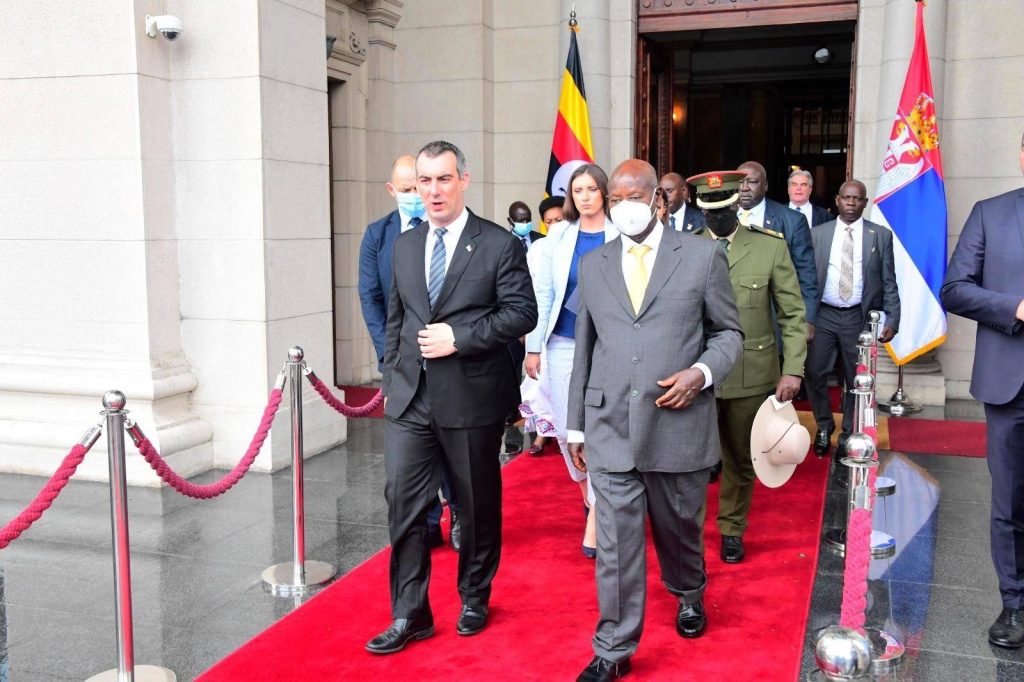
The Foreign and Diplomatic Affairs Unit is responsible for keeping H.E the President fully and accurately informed about international diplomatic issues which affect Uganda’s interests.
The Unit is responsible for ensuring that diplomatic etiquettes are upheld unreservedly in all functions in State House and that H.E the Presidents diplomatic appointments and arrangements for the presentation of credentials for incoming heads of missions, meetings between H.E the President and members of the Foreign and Diplomatic Corps, coordinate all visits to Uganda by Foreign Dignitaries and to other countries by H.E the President or members of the First Family and to ensure that all mail from the Ministry of Foreign, Diplomatic missions and international organizations/individuals addressed to H.E the President or State House are received, sorted out and scrutinized for action. Interpretation of languages is also done where necessary.
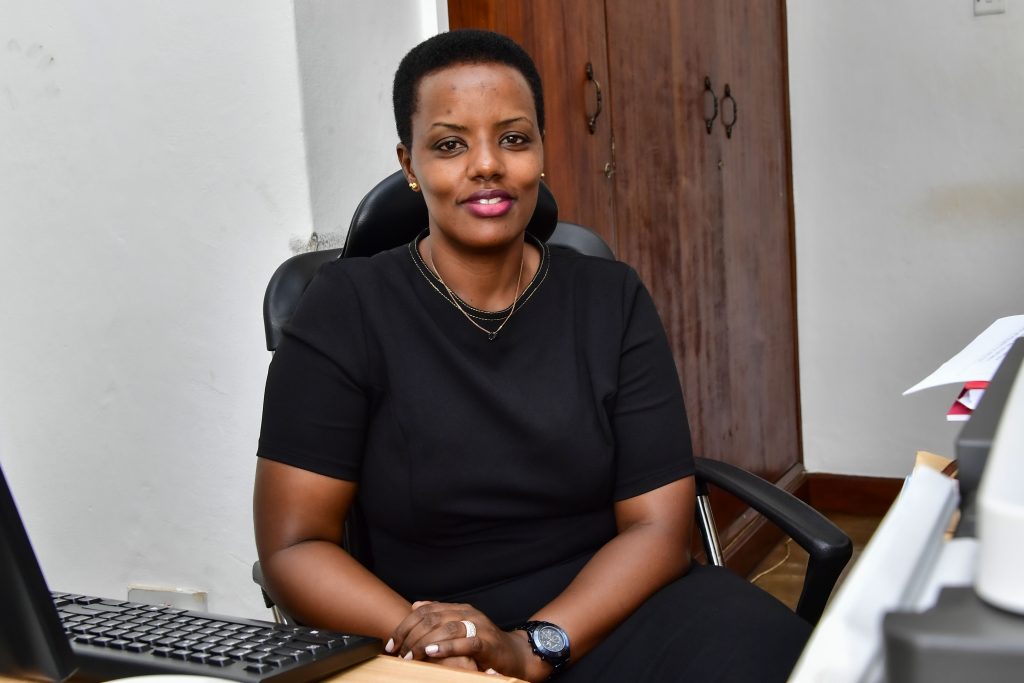
The Legal Unit of State House is responsible for all matters of a legal nature involving or addressed to H.E the President, the Principal Private Secretary or the Institution of State House. It is responsible for ensuring that all legal matters are effectively, expeditiously and lawfully handled and also to facilitate direct linkage with the Attorney General.
The Unit is also responsible for providing timely legal advice on all matters of a legal nature or involving legal technicalities tendered to H.E the President, H.E the Vice President, the Principal Private Secretaries and the Institution of State House.
The department is comprised of a team of nine lawyers. As the legal department in the State House, we offer advisory services to the President and the wider State House in liaison with different government ministries and agencies. We call upon members of the public to approach our offices all our services are free of charge. Feel free to walk in, we will be able to offer the assistance that you need.
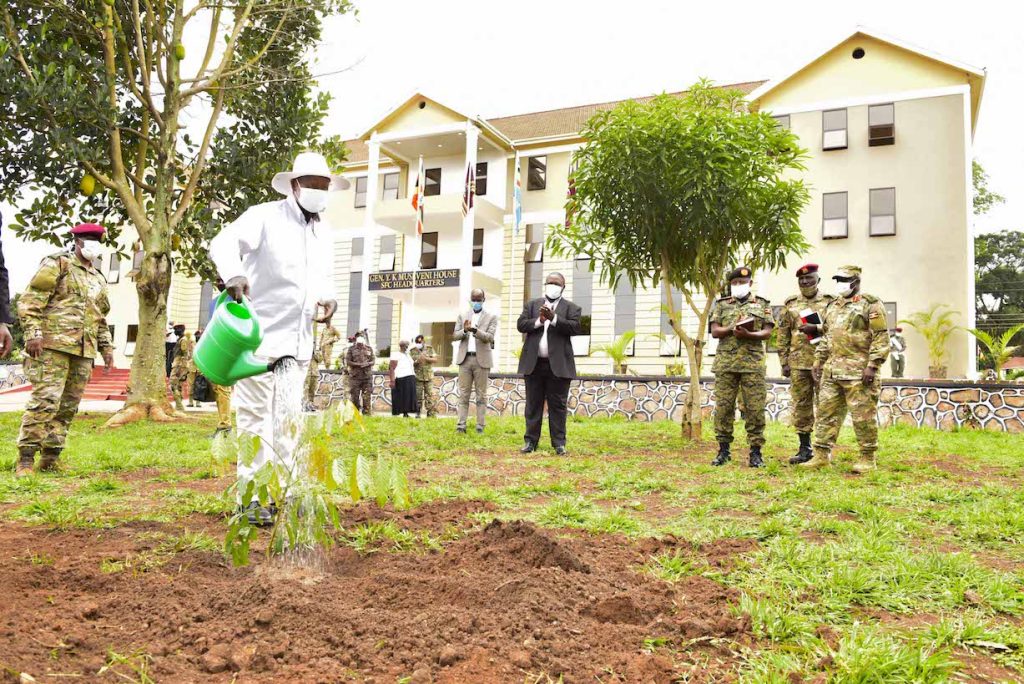
The Security and Defense unit is responsible for harmonizing and coordinating activities regarding security and defense related matters in State House with other State Organs.
The unit provides an effective linkage and coordination between H.E the President, the Institution of State House, the Special Forces Group and various security organs in a manner that enhances expeditious collaboration, strategic actions and decisions on all security matters.

The Agricultural Sector continues to be the most important sector in Uganda; it employs approximately 72% of the population and contributed about 32% to the GDP. However, Productivity is limited by reliance on natural weather conditions and the still widespread use of traditional methods and equipment.
Uganda is among the leading producers of coffee, bananas and oil seed crops (sesame, soybean, sunflower etc.). It is also a major producer of other crops like tea, cotton, organic cotton, tobacco, cereals, fresh foods and vegetables, nuts, essential oils, flowers, poultry and freshwater fish.
The Ugandan Government is pushing for greater commercialisation of agriculture by encouraging the use of irrigation and mechanised farming. Opportunities for investment exist in:
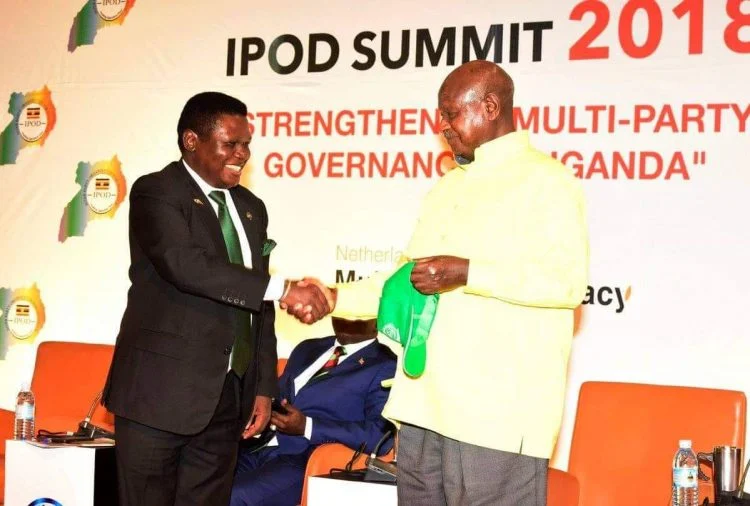
The first ever Interparty Organization for Dialogue (IPOD) Summit took place on 12 December 2018.
This high-level event brought together Uganda’s political party leaders and Secretary Generals. They discussed how to strengthen multiparty democracy in Uganda, with a focus on four main areas:
The Summit was first of its kind in Uganda, and a chance for the political parties to make a real commitment to continued dialogue in the interests of their country.
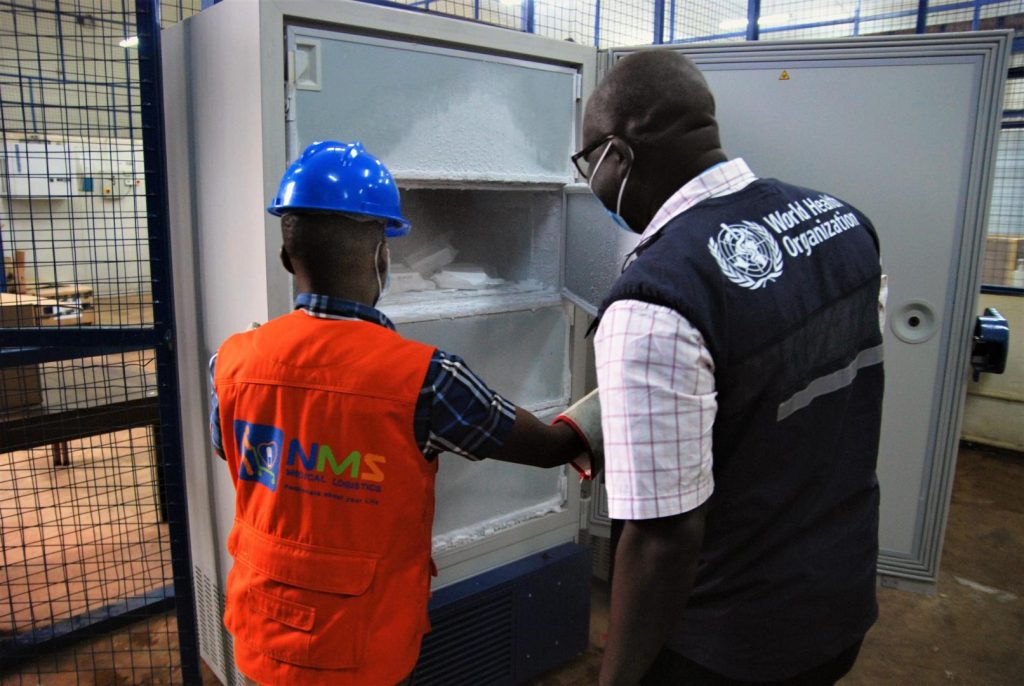
Drugs are an essential aspect in Uganda’s health sector. Rarely will any positive diagnostic fail to end up in an affiliated drug prescription. This makes drugs one of Uganda’s major import claiming millions of shillings on the national budget each financial year. As a developing country, Uganda strives to ensure it has all its population healthy and sound to take on the great role in developing the country. To achieve this, a number of government private health facilities have been put in place. Organizations like NMS, JMS are in place to take on the task of distributing drugs to all the health facilities, and to government health facilities in particular by NMS. A Lot of money is spent on buying and distributing drugs within the country. However, the big wastage due to expiry renders all the efforts in vain. This has majorly been attributed to the weaknesses in the drug distribution mechanism and management system. The drug expiry monitoring and control system is developed and designed to reduce the quantity of drugs that expire within Uganda. The developed system is limited to the public sector and hence main users of the system are procurement body-NMS, distribution body-DHO, and dispensing bodyPharmacist at the public health facility. The system has functionalities that aid in this process, that is alerts which notify the available drugs which are expiry soon and reports can be generated to monitor which quantity of drugs need to be redistributed before it expires.
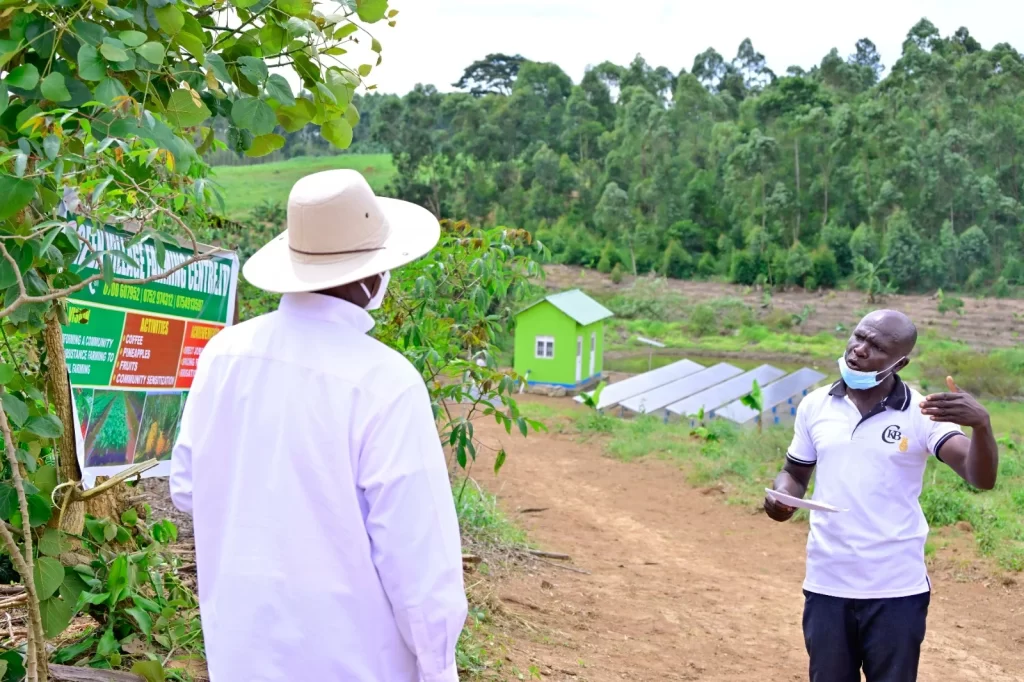
The Lands Unit is responsible for providing policy direction, national standards and coordination of all matters concerning lands, housing and urban development. We are responsible for putting in place policies and initiating laws that ensure sustainable land management, promote sustainable housing for all and foster orderly urban development in the country.
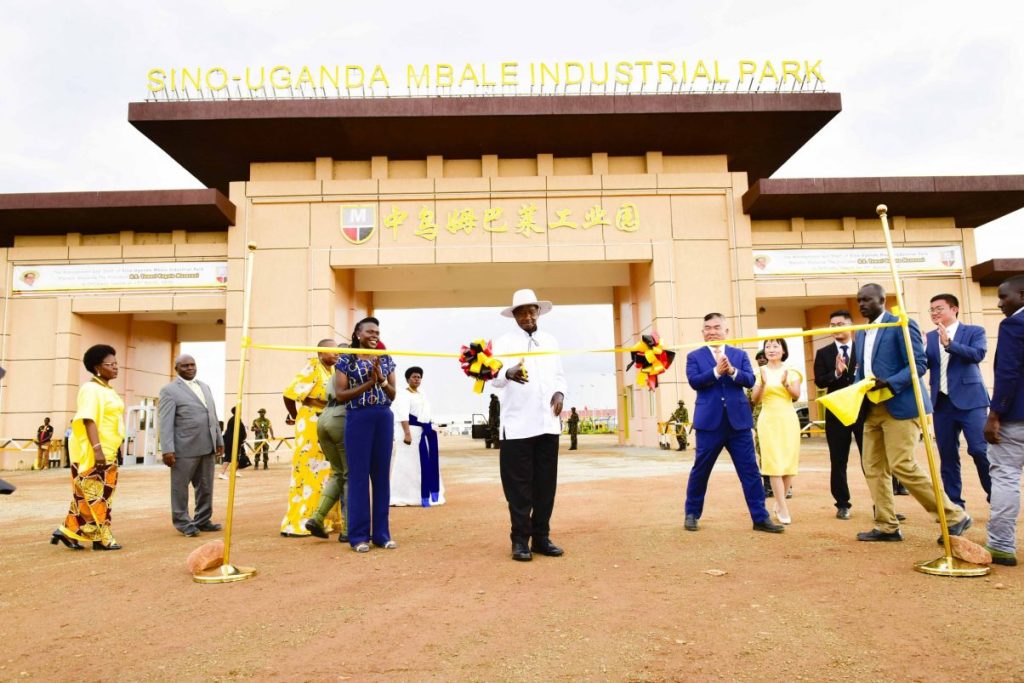
The Economic Unit oversees all aspects of the economy and is responsible for keeping H.E the President, accurately and fully informed and updated constantly on the performance of the economy and the general economic issues so as to facilitate rational decision making on economic matters at the national and international levels.
The Unit is also responsible for advising the President on economic matters relating to macro and sectoral performance and to research, analyze and prepare briefs on economic related information and issues so as to facilitate H.E the President’s decision making on economic matters.